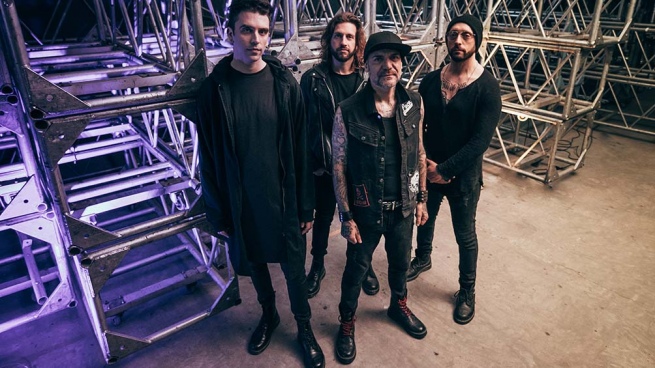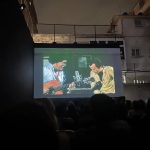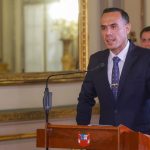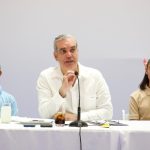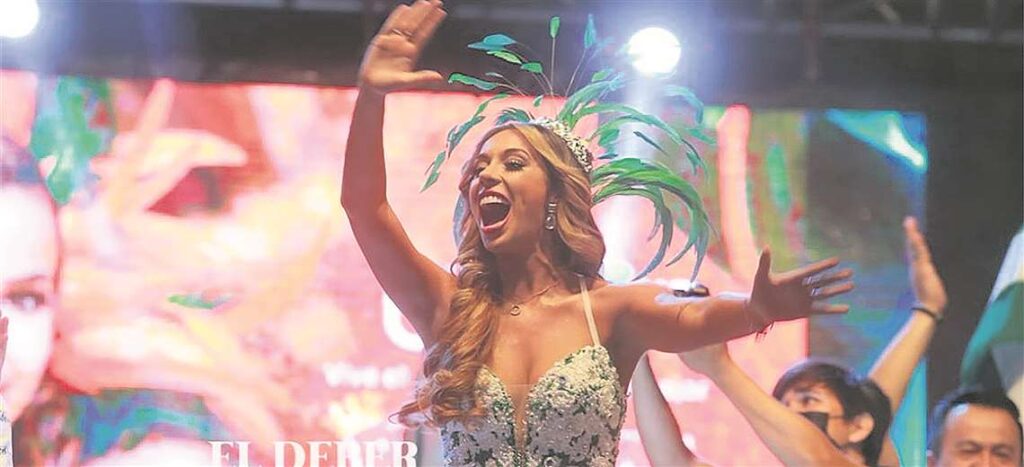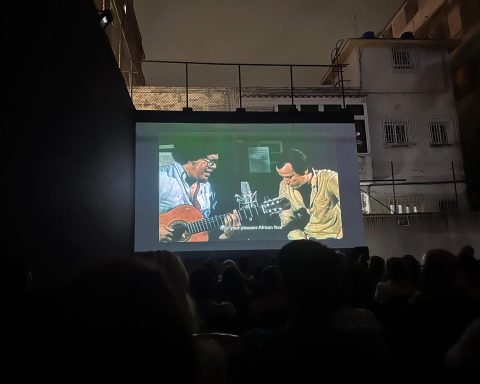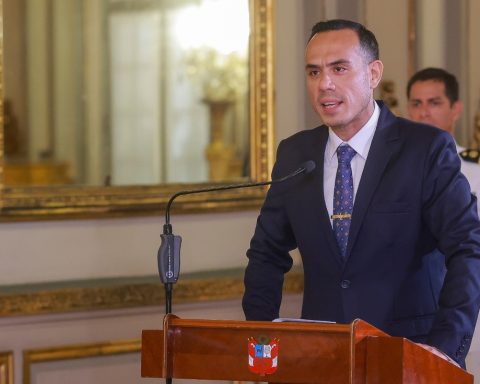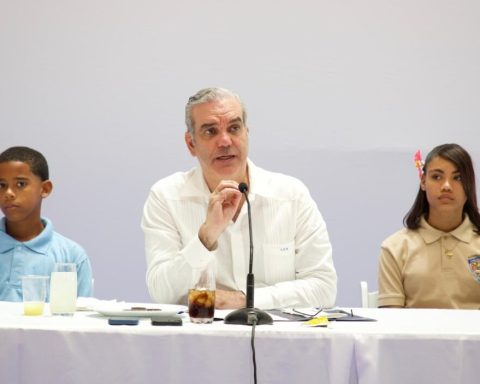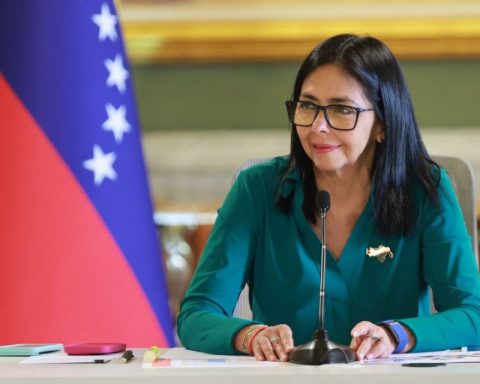Musician Marcelo “Corvata” Corvalán told Télam that his new group Arde la Sangre, which marks the return of his artistic alliance with Hernán “Tery” Langer, served as “an artistic refuge and a ground wire” to confront a reality then marked by the beginning of the pandemic and “without thinking about the past, about people and about no one else”, to go through “mourning” for the dissolution of Carajo.
“It was like a bubble in time that served us to make music and experiment. A year after we started getting together we had about ten demos. And only then was it for me to start looking forward; because at first no one knew about it except our families, wives and girlfriends. I didn’t want to rush until I felt sure I could get through Carajo’s 20-year mourning,” said the singer and bassist.
At the beginning of 2020, the end was announced for his former group, and a few months later, motivated by Luciano Farelli (guitar and keyboards), Corvalán began to shape what would be his new metal and power rock project, later baptized as Arde. the bloodwhich would be completed with the arrival of his former partner “Tery” Langer on guitar and Nacho Benavides on drums.
With the premiere of some first singles and a first live presentation from the Microestadio Malvinas Argentina -without an audience and transmitted by streaming-, the group was ready to inaugurate its discography, first with the recording of that live with “El Comienzo” and, towards the end of the year, with “La Cura”, a first album that is offered like a raw and poetic story, loaded with guitar riffs and an infallible solid base.
Télam: On more than one occasion, you talked about how this project served to heal. Why?
Marcelo Corvalan: After the separation from Carajo, the pandemic arrived. And perhaps the healing thing has to do with that mixture of sensations: that of losing a project after twenty years. Without dramatizing it, because it is a duel, and whether you like it or not; and no, because there is nothing neither bad nor good in that and I am not a victim of anything. But healing has to do with something that ends for which you bet everything, and also with what was being experienced in the world, with the concern that something might happen to a loved one or your family. With this project we found a reason to get together, experiment and try to compose, although most of the time from a distance. At that moment, we realized that something was starting to work and that it was quite organic, not forced at all and that on top of that it was getting fun
T: Was the album appearing as it went? Why do they say that he was impregnated by a “teenage spirit”?
MC: Yes, we worked a little more and in August, when the protocols were loosened and we were able to have a room rental permit to move freely, we all got together to start playing. It’s just that at first it was very crazy, because I felt like a criminal going to Tano’s (Farelli). He thought, “I’m breaking the law, but am I hurting someone?” He had to survive, compose and play; he would grab the bike and I would go from Paternal to Florida. I feel that all that adrenaline is in the music, that’s why I feel that it has that adolescent spirit and first time. We also wanted to play with the secret so that there would be a surprise afterwards. It was a very important letter that we had to peel. And, in my case, already with a third band it was like the fear of being like the ex, ex or falling into comparisons, which are sometimes good when you come from a successful place. I’m not going to deny that it serves a lot, but I didn’t want to rest on those laurels either, knowing that it had something else to offer. “Tano” and “Nacho” perhaps put an extra fee on it, that if it were “Tery” and I alone, it was very difficult to reinvent ourselves just like that and from one day to the next.
T: Thinking about this new vision for the band opened up other possibilities for you from writing, as happened with “Ángel Bastardo” where you opened yourself up to sharing more of your story?
MC: I think so, that happens to you all the time. With ANIMAL he was young and did not yet have the profession of song writer, although he did it for Andrés (Giménez), with whom we were trying to vindicate our aboriginal culture. It was like, hey, here is something pure that capitalism and the modern world are devouring. And here there was a lot of talk about urban tribes; there was that division, but we set out to unite the punks, the heavies and the rappers that were few and were appearing. To all the alternative current that came with fresh data. We wanted to unify that in the message and that was our leitmotif. Just with Carajo was the first time I started writing for myself, because before that I didn’t sing except for two or three little things. And there something changed with that of living what I sing, which led me to try to be a little more correct and not barde for the sake of bardear; that if I denounced or complained about something, I had to take responsibility because some might like it and not others. For me it was like a reinvention, trying to find and discover poetry and romanticism. And it was really crazy because at first I felt a bit lost, like alone on an island. And with Arde la Sangre, in this plan of beginning to get to know each other with the boys, I began to tell them my story as an adopted son. The story my adoptive parents told me since I was little.
T: Were you able to find the full story?
MC: Already a little older, at twenty, at thirty I was asking questions, trying to string together the whole story and I was never able to discover it. But, now about to turn fifty, two years ago, I went back to that conversation with my mom and was able to discover a little more. It was crazy that this need to know my own origin was awakened. Talking also with my daughters, I was able to tell a little more. Always in a healthy plan because, thank God, I always felt at peace with my story, but I wanted to try to get there as much as possible. And there, in all those things, I left with a lot of data from our talks and that’s why there were a lot of lyrics left on the album that talk about finding our identity. And I feel that we had a happy ending, because bad things happen to all of us, to some more and to others less, but the summary is always that we were able to channel it into music, both because of the place we occupy within the scene as musicians or as fans. of bands. We always had that place, that refuge and it helped us a lot. That’s also why the album is called “La Cura”, because it was the best summary for this beginning and to be able to reflect a little where it was born from and in what context the group started.
